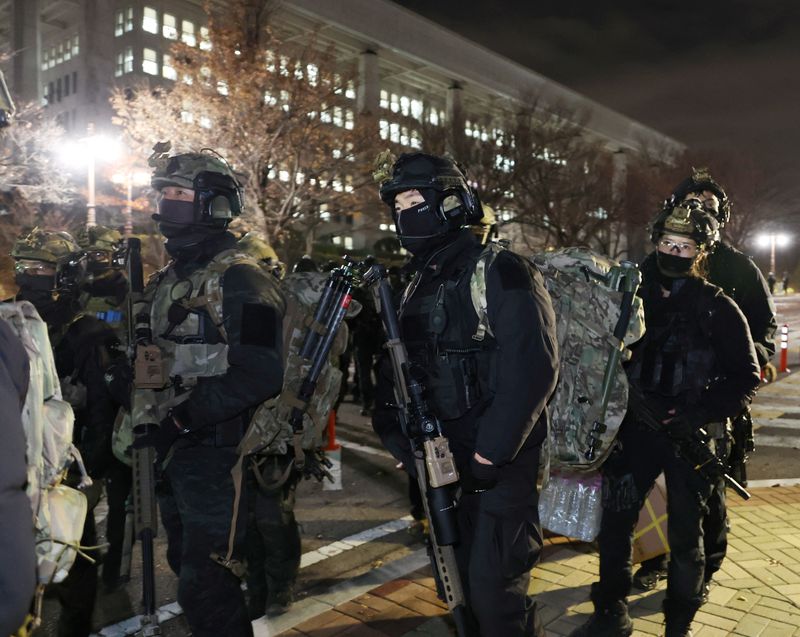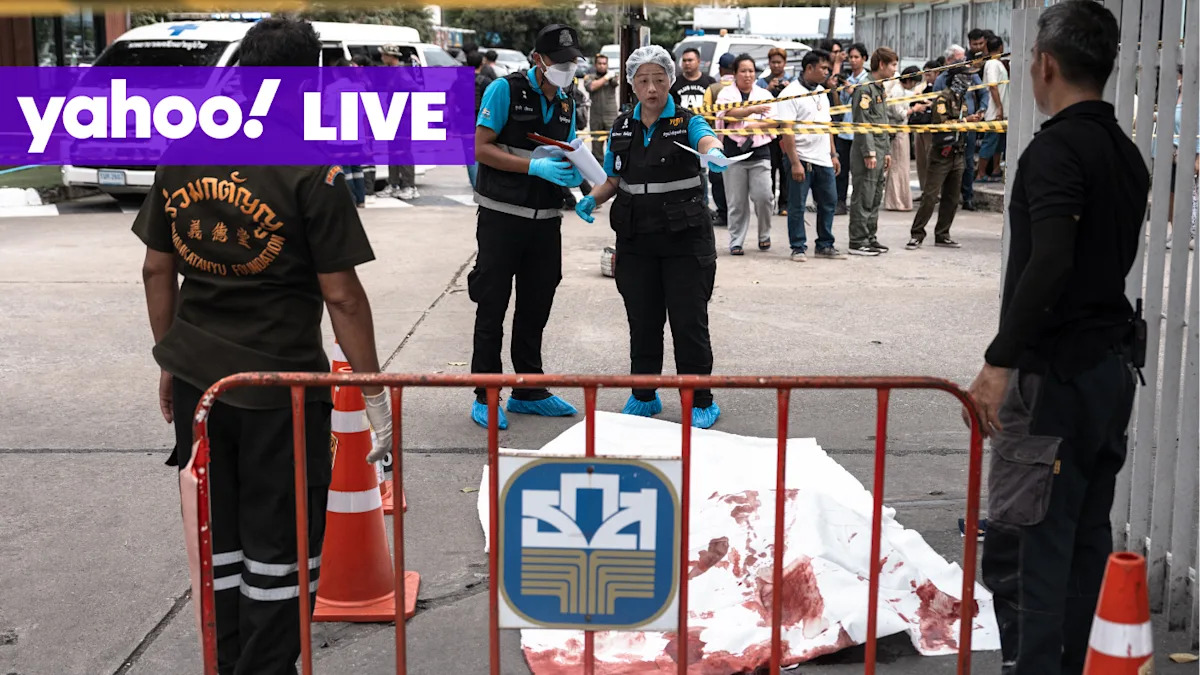By Hyunsu Yim and Ju-min Park
SEOUL (Reuters) – The commander of South Korea’s special forces that stormed parliament last week after a martial law declaration said on Monday he was ordered to block lawmakers from entering the chamber to prevent a vote to lift the emergency measure.
Colonel Kim Hyun-tae, the commanding officer of the 707th Special Missions Group, told reporters he took all responsibility for his troops’ raid on parliament but said he was acting under orders from the defence minister.
Trusted news and daily delights, right in your inbox
See for yourself — The Yodel is the go-to source for daily news, entertainment and feel-good stories.
South Korean President Yoon Suk Yeol, who is now a subject of a criminal investigation, declared martial law on Dec. 3 only to rescind the order within hours after parliament met in defiance of a security cordon to vote it invalid.
Yoon survived an impeachment vote in a opposition-led parliament on Saturday which plunged South Korea into a constitutional crisis.
Yoon said ahead of the vote he was entrusting his fate to the ruling party, but he did not offer to resign.
Kim said his unit landed on the grounds of parliament with orders to cordon off the main building to prevent lawmakers from entering but was met with legislative staff members inside who blocked their entrance.
“We were all victims who were used by the former defence minister, Kim Yong-hyun,” the commander told reporters outside the defence ministry in Seoul.
“The members of the Group are not guilty. Their only guilt is that they followed the orders of their commander,” he said, fighting back tears.
The former defence minister was arrested on Sunday over his role in declaring martial law and ordering the deployment of troops to parliament.
The leader of Yoon’s People Power Party, Han Dong-hoon, said on Sunday that Yoon would be excluded from foreign and other state affairs, and the party and Prime Minister Han Duck-soo would manage government affairs.
National Assembly speaker Woo Won-shik said it was unconstitutional to delegate presidential authority unless the president is impeached.
The main opposition Democratic Party, which led the failed impeachment motion on Saturday, said it would raise the motion again.
(This story has been corrected to say South Korean President Yoon Suk Yeol would be excluded from state affairs in paragraph 10)
(Reporting by Hyunsu Yim and Ju-min Park, Writing by Jack Kim; Editing by Jamie Freed and Stephen Coates)


